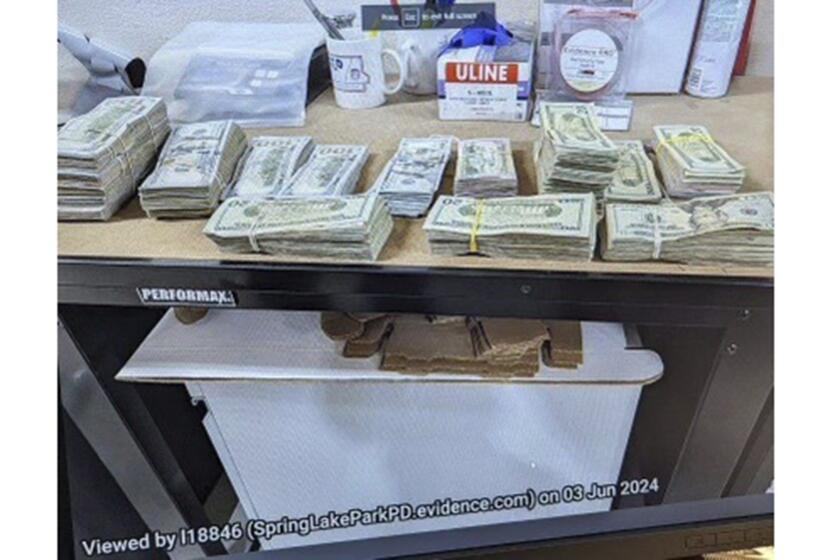Youth arrests in the U.S. up in recent decades
A third or more of 8- to 23-year-olds in the U.S. have been arrested for a non-traffic offense, researchers estimated Monday in the journal Pediatrics.
Criminologists from the University of North Carolina at Charlotte, the University of Maryland at College Park and the State University of New York in Albany sought to estimate the proportion of kids in the U.S. who had been arrested -- a number that had not been updated in several decades, they said. In the 1960s, criminologist Ron Christensen projected that around 22% of the U.S. population would be arrested by the age of 23, if 1965 conditions persisted. But in the years since, researchers hadn’t dependably estimated a cumulative arrest rate, the authors wrote.
To tackle the problem, the team examined data from more than 7,000 participants in the 1997 National Longitudinal Survey of Youth, a nationwide survey that asked participants over several years about their arrest records, among other things. Analyzing the data to account for statistical errors, they then compared their findings -- that by 18, between 16% and 27% of kids had been arrested, and that by age 23, between 30% and 41% had -- with Christensen’s earlier estimates.
While current arrest rates lagged 1965 rates among younger teens, they exceeded 1965 rates among youths 19 and older. The researchers suggested several possible reasons for the uptick in arrests, including a more aggressive criminal justice system and Americans’ tendency to remain in school longer and marry and have children later -- prolonging adolescence, “traditionally...a period of greater offending activity,” they wrote.
Pediatricians should pay special heed, the authors wrote, because it is known that kids who have arrest records are at risk for adverse health, social and economic outcomes. They’re more likely to remain unemployed for longer periods of time, to experience violence and to be involved in family conflict. If physicians pay attention to risk factors for delinquency that appear early -- for example, hyperactivity, sleep disorders, and aggressive behavior -- they might be able to step in and guide their young patients, the team said.
“Timely intervention by pediatricians in the lives of these youth may be an important opportunity to move young people onto a path toward safer, healthy, productive and successful lives,” they concluded.
Return to the Booster Shots blog.
More to Read
Start your day right
Sign up for Essential California for news, features and recommendations from the L.A. Times and beyond in your inbox six days a week.
You may occasionally receive promotional content from the Los Angeles Times.







